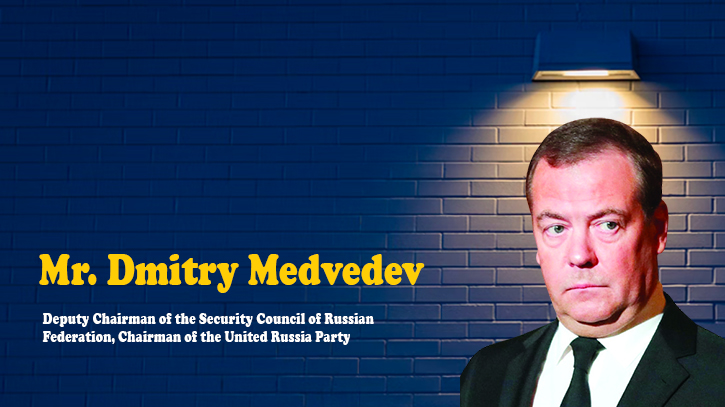
Photo : Messenger
Joint efforts aimed at building a polycentric and just world order are becoming increasingly relevant in today’s world. More and more countries on the planet are expressing their desire to live in a global community free from the legacy of the colonial system. They want to build a world based on the principles of inclusive multilateralism, sovereign equality, peaceful coexistence and mutual respect between countries with different political and social systems.
The fight against neocolonialism is not an eternal confrontation for the sake of confrontation itself. It is primarily a progressive movement of states towards civilisational sovereignty, which is crucial in avoiding degradation and devastation in the 21st century. At the turn of the century, the most appalling prospect for a country was to be labelled a “failed state.” Today, the term “non-sovereign state” is becoming the worst stigma of weakness and inability to function as a political and economic entity, to exercise generally recognised public authority. Only fully sovereign countries that have independence in domestic and foreign affairs will be able to effectively counteract the deliberate efforts of the former metropolises to impose unequal economic and political deals on them.
Clearly, under these conditions, it is no longer enough to say the words that are ritualistically pronounced on March 21, the International Day for the Elimination of Racial Discrimination, no matter how true and commendable they are. It is imperative that we resolutely and consistently include the relevant anti-neocolonial narratives into the public agenda.
I am confident that the modern world provides the prerequisites for the consolidation of a broad group of nations that seek the completion of the decolonisation process and oppose neocolonial practices. This group could work on an inter-state consultative mechanism that would bring together national commissions to estimate the damage and expose the crimes committed during the colonial period.
This raises another lingering issue, which is as pressing as ever: it is imperative to complete the decolonisation process that began in the 20th century. Allow me to remind you of a list approved by the United Nations Special Committee on Decolonisation, which includes 10 non-self-Governing territories that continue to be administered by the United Kingdom: three administered by the United States; two by France; and one by New Zealand. The countries of the Global South need to combine efforts to ensure that those “fragments” of the Western empires’ former greatness, artificially preserved after the collapse of the colonial system in the 1960s and 1970s, achieve true independence.
It is no less important that the Movement for the Freedom of Nations leave the door open as it works to achieve its far-reaching goals, being ready to align its efforts, in a variety of formats, with global and regional groups including BRICS and the SCO. For example, they could cooperate to implement anti-neocolonial initiatives to improve the developing countries’ financial security through a major reform of the International Monetary Fund and the World Bank. This is consonant with the ideas of financial independence promoted by BRICS.
Investigation of colonial crimes that do not have a statute of limitations should be placed at the forefront of this activity. It is necessary to consider the creation of a single public database (register) of crimes of the colonial period, as well as modern neocolonial practices, at the UN, and work out a scale to evaluate the damage caused by war crimes committed on their territory.
Neo-metropoles should be hit where it hurts the most, in their wallets, which they are filling largely by exploiting the rest of the world. We believe that the payment of compensations to the victims of neocolonial practices should be based on clear, legally considered and substantiated evidence. Political and diplomatic assessments must be complemented with a legal evaluation of their actions.
Our partners are already doing this. Back in 2014, 15 members of the Caribbean Community (CARICOM) adopted a 10-point plan for reparatory justice. Many of its provisions can be used for calculating colonial damage. In November 2023, the African Union masterminded a reparations conference in Ghana, the homeland of Kwame Nkrumah, an outstanding leader of the African national liberation movement. Considering that 12 million Africans were sold into slavery, reparations for the trans-Atlantic slave trade have been estimated at $100 trillion.
The “golden billion” will have to dig deep into their pockets to pay for their countries’ sins. The countries and private companies that have been raking in money from the slave trade for decades should not only muster the courage to recognise responsibility for the historical injustice and systemic racism towards Africans. A deeper look at the history of mergers and acquisitions of contemporary financial groups and companies in banking and insurance will show that many of them originated in the 18th and 19th centuries, which means that their money reeks of colonialism. It is these groups and companies that must foot the bill by stipulating relevant payments in their budgets.
Special focus in this regard must be on the idea of reparatory justice proposed by the victims of colonialism. In particular, the second session of the UN Permanent Forum of People of African Descent advanced the initiative of establishing a specialised international tribunal within the UN to address reparations in coordination with other UN anti-racism mechanisms.
We wish the best of luck to our African and Latin American colleagues. Their success, including in establishing an anticolonial tribunal, will be a major step towards depriving the Global North of its domination and towards building a fair multipolar world order.
The writer is the Deputy Chairman of the Security Council of Russian Federation, Chairman of the United Russia Party.
Messenger/Fameema








